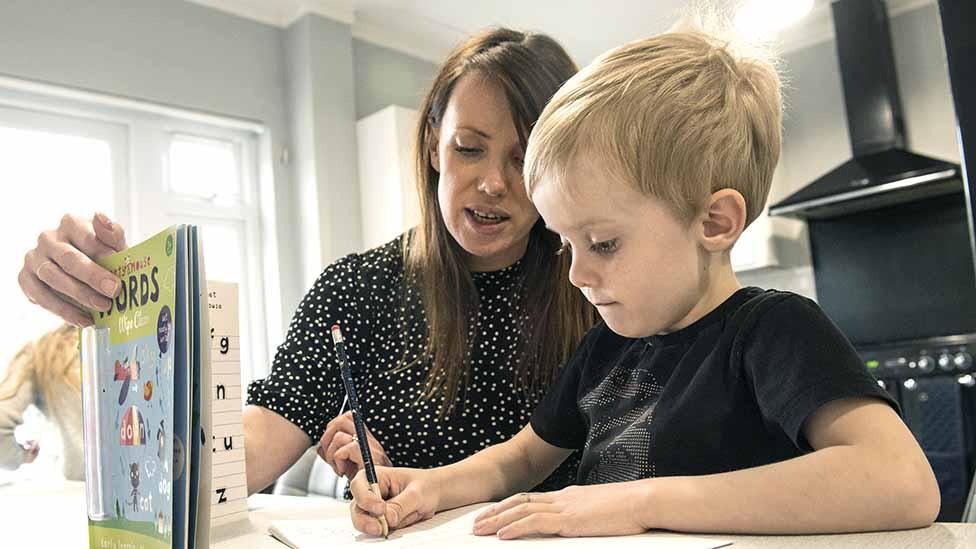'It's OK to have a bad day': The challenge of motherhood during the pandemic
- Published
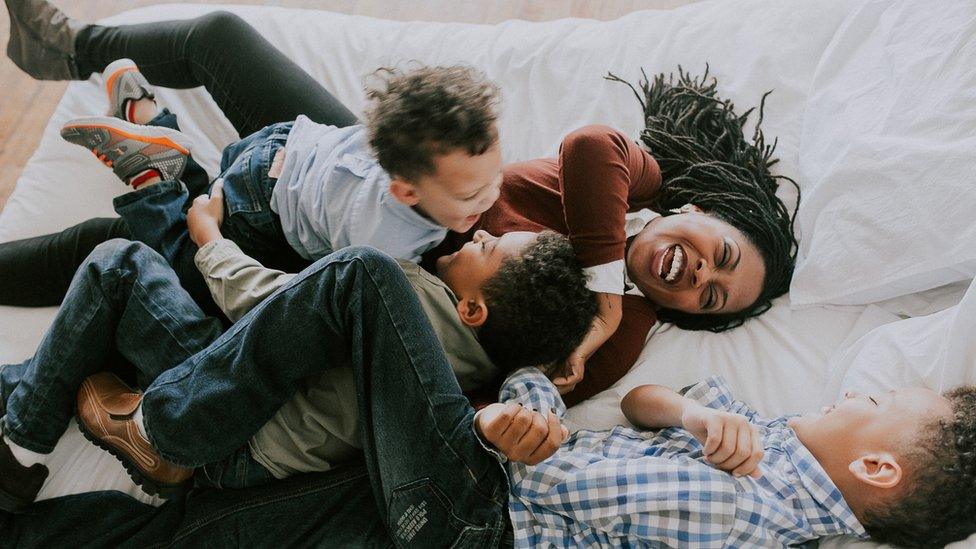

When the coronavirus outbreak arrived in the United States, families were forced to adapt. Office closures have collided with shuttered schools, forcing parents to work from home as they balance full-time childcare and part-time teaching, helping their kids with remote learning.
Parents across the US are struggling with this added burden. In some cases, it is falling most heavily on mothers.
In a May survey of parents in the US, UK, France, Germany and Italy by the Boston Consulting Group, families reported an additional 27 hours spent each week on household chores, childcare and education - nearly the equivalent of a second job.
But women spend 15 hours more than men on this added domestic labour, reflecting pre-pandemic norms. Similar findings have been reflected in a number of other studies.
We spoke to three mothers from around the country who told us how they are handling the added strain, and how they feel looking forward with a return to normalcy in the US still months away.

Katy Schultz
Katy and her daughter, Londyn, 7, live in rural Wisconsin. Katy and her two siblings own Tri-Fecta farms, a 400-cow dairy farm just outside of Fox Lake.

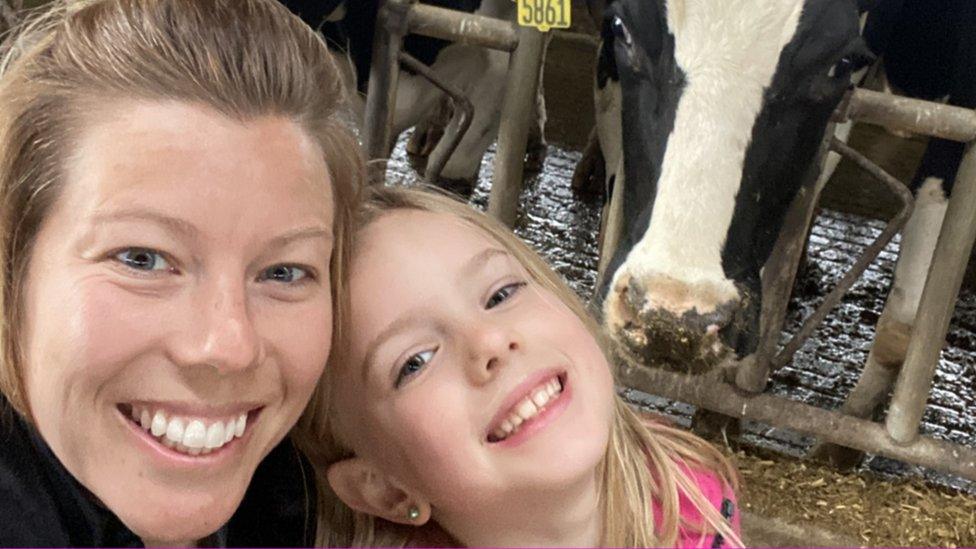
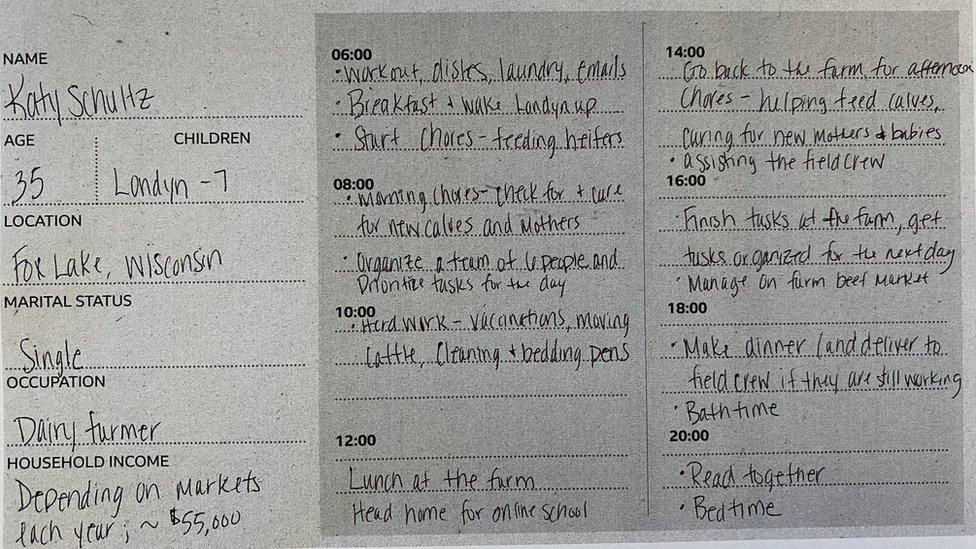

On bringing kindergarten to the farm
Londyn was going to a full-time kindergarten, which shut down in March. It was supposed to be temporary, but by the beginning of April we all had the gut feeling that there was no way that they could be going back. And so from then on out, we just shifted.
So for me, Londyn just became my assistant on the farm, and she has been incredible.
And the farm offers an opportunity for her too. It sounds so ridiculous but we're practising numbers. She's reading ear tags to me as we're checking cows, we're doing math problems while we're in the pen. Like: 'I have this many cows in the pen, and I can only have this many, how many do I have to take out?' It is definitely not your traditional kindergarten curriculum by any stretch of the imagination.

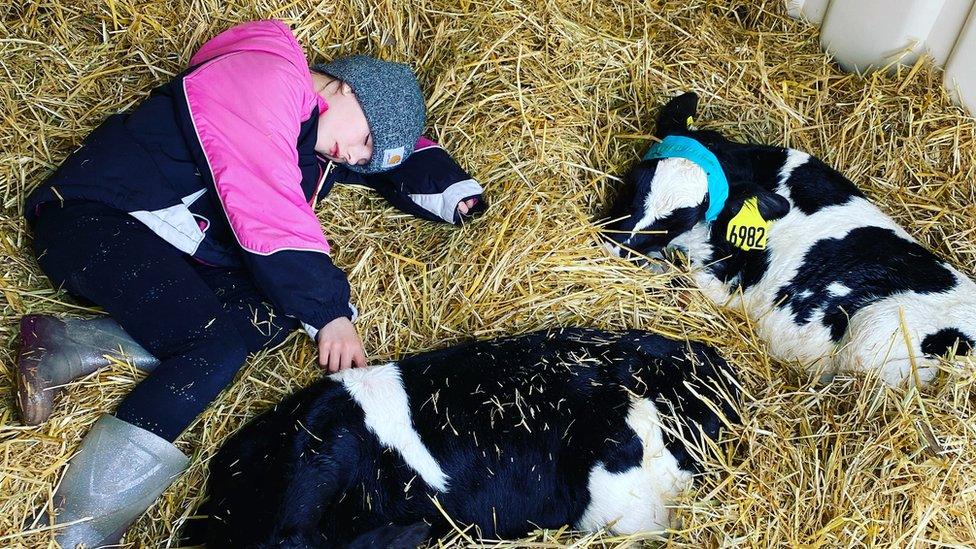

On adjusting her business
It's been a rollercoaster to put it nicely. When everything first hit and the restaurant industry side of things and the hospitality side of things shut down - our markets came to a screeching halt. We saw how much of our market here is really taken up by the education system, by the hospitality industry, by the restaurant industry. There was just a rude awakening.
Before the pandemic, we had a kitchen table discussion about doing on-farm beef sales. And so we expedited that, and by the end of April, beginning of May we were open for business, selling.
On staying grounded
Every morning I read devotions, I read my bible. I need to start out my day having a level head and just being grounded, and knowing that I don't need to take care of everything.

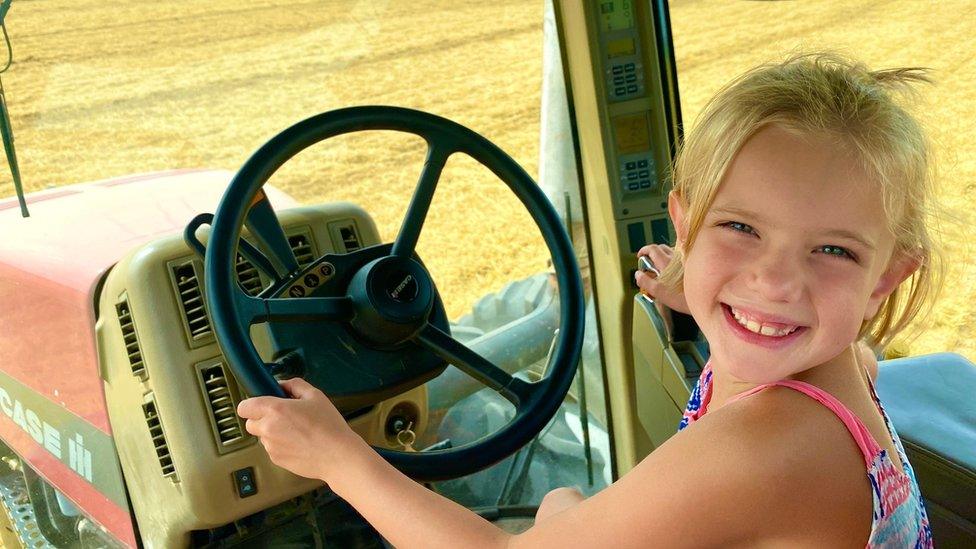

I don't hide my emotions. I let my child see when I'm sad or when I'm happy or when I'm upset or when I'm frustrated so that she knows that it's OK to have those feelings and it's OK to work through them. But I also have to know that she's watching me and how I react to that. How do I work through those feelings? Do I throw a fit or do I say a prayer? A simple choice like that can teach her how to deal with emotions.
It's giving yourself that allowance that it's OK to have a bad day. It might be a bad day, it might be a bad hour, but this isn't a bad life.

Octavia Reese
Octavia, 37, is an artist, master's student and a single working mom. She lives in Chicago, Illinois with her three boys, aged 7, 10 and 13, and works at Lurie Children's Hospital as an IT trainer.

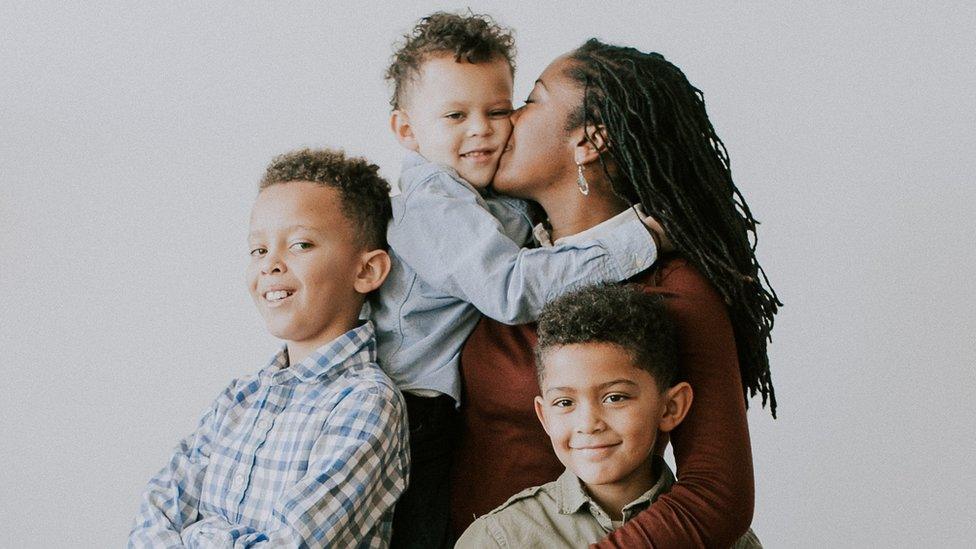
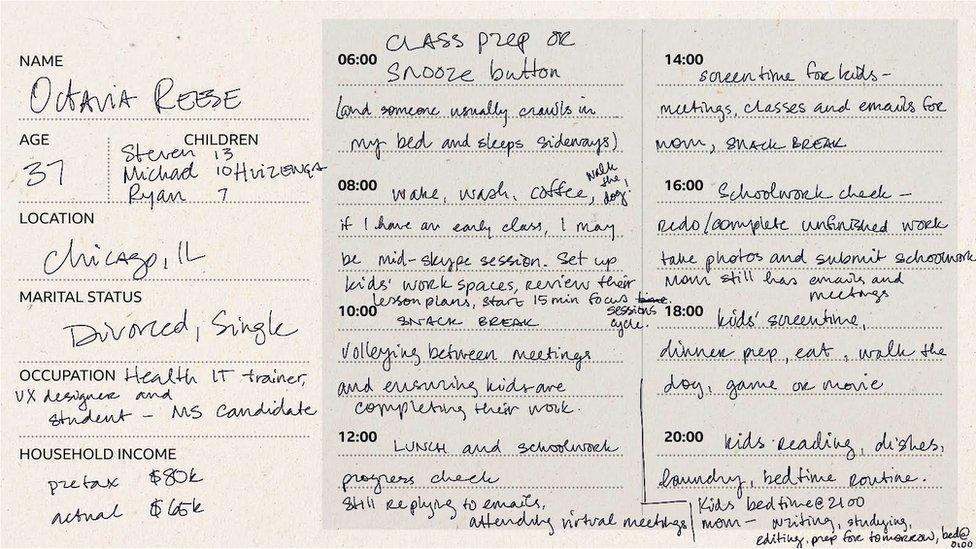

On working through chaos
I train everyone in the surgical department, anaesthesia, radiology and population health in our healthcare record software. Teaching completely from home has been really tough, especially having all three of my boys home. It has been nothing short of chaotic.
They're traditional siblings: running, tattling and the occasional screams and then, you know, you find out nothing really happened. But all of that going on in the periphery while I'm trying to do my job is really, really difficult. And I have been irritable with them - because it's hard. And I'm asking them to do a very adult thing. I have to keep repeating: "I am training a class right now. I need you to be silent, do not interrupt unless it's an actual emergency and somebody is bleeding". But my kids are really, really well behaved and cooperative in that way.
On keeping balance
Juggling four people's lives is really tough. And I am a single parent so there's no one to help run interference for me. I am a single parent home so it's all on me. I have to manage every household function, every chore, pay every bill, check every person's homework. And a lot of times I put them first.

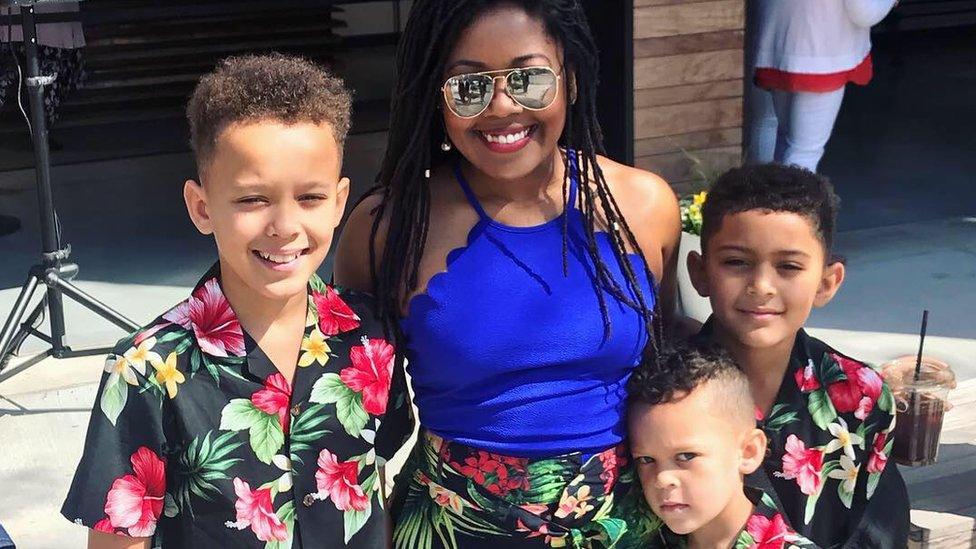

I sleep when I'm tired, if I have space to do that, and then I just keep going. I have no doubt that's going to catch up with me at some point but for now I just have to keep going. I try not to plan too far ahead because everything is shifting. It's got to be temporary. I've been through so many uncomfortable seasons in my life that the only thing I know is that everything eventually ends. So I just keep focused on what's in front of me right now.

Maisavel Saldivar
Maisavel and her husband are new to San Antonio, Texas where they live with their two boys, aged 5 and 15. She is a full-time teacher and student.

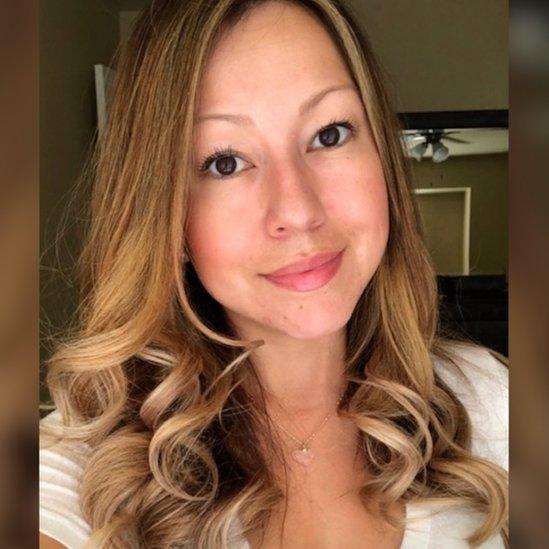
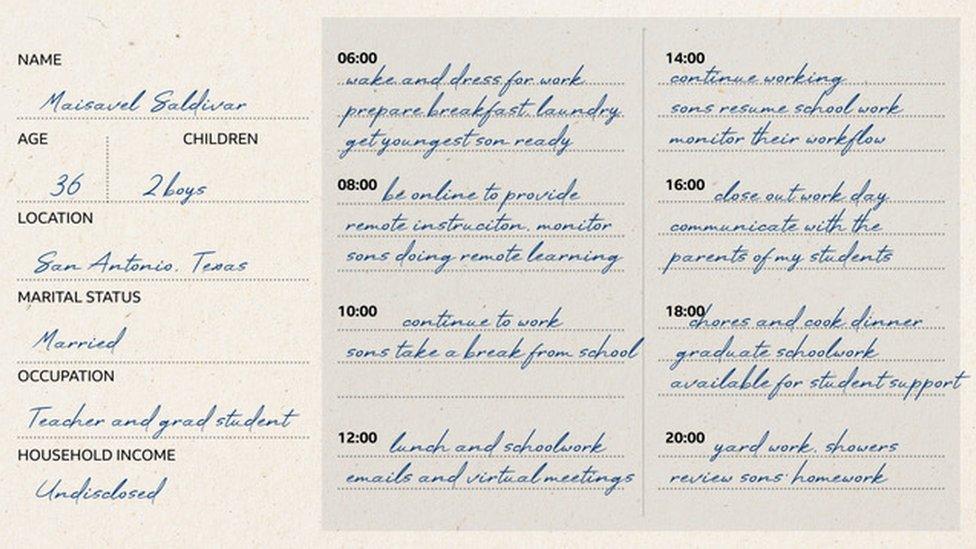

On how pandemic has affected us
I am a mother, a teacher, a graduate student, and a wife and this pandemic has caused these roles to either blend or diminish completely.
My husband was laid off from a job in the oil industry at the beginning of the shutdown and immediately began a programme to learn new skills and begin a new career. He isn't available most of the day or night so duties gravitate toward me. I must both deliver instruction to my students and to my own children - most of the time simultaneously. I feel inadequate at times because I want to deliver my best but being pulled two separate ways can be exhausting.
The coronavirus also took someone very special from us. The fear and uncertainty it has caused is almost paralysing.
'What if I wasn't here?'
I'm in charge of cooking and cleaning while lesson planning and doing graduate work.
I try my best to give my husband the opportunity to stay in his bubble and focus on school. I feel like he wouldn't manage without me. I often ask him, "what if I weren't here?" If my little one is making noise or something, my husband will look at me and point to his computer, to prove he's too busy. I feel like a full-time nanny.
- Published27 May 2020
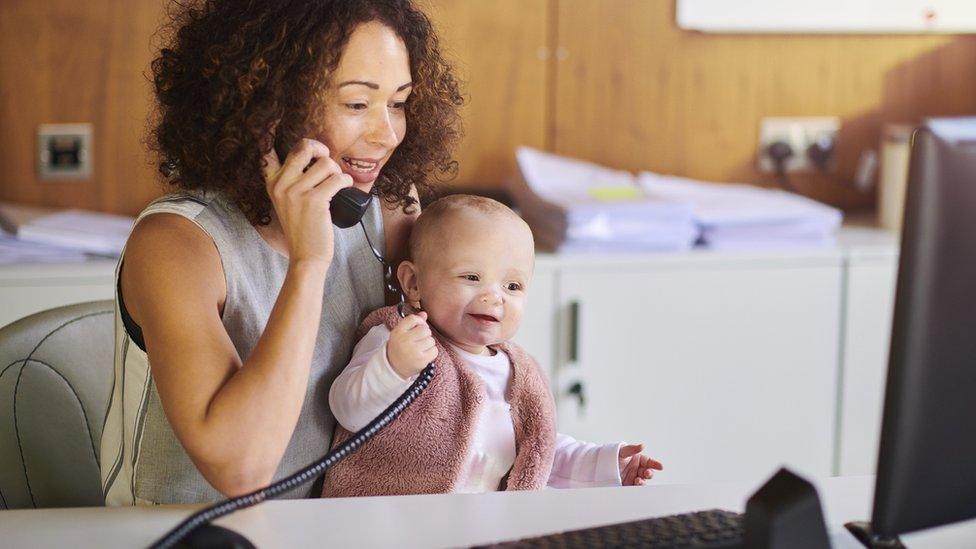
- Published29 May 2020
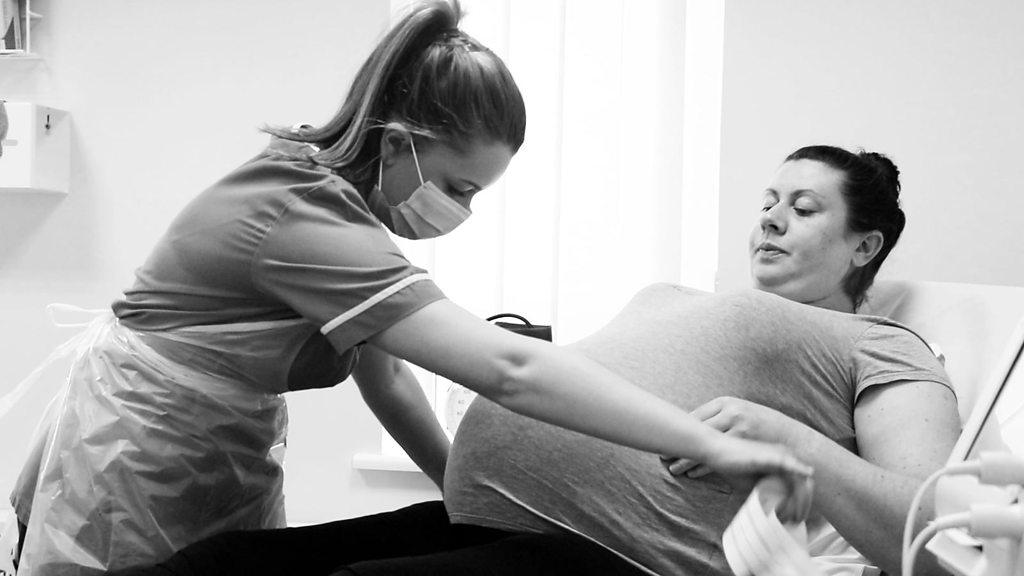
- Published8 July 2020
